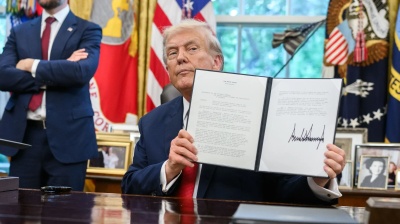Stricken Croatian food and retail giant Agrokor plans to ask for three extra months to reach a settlement with creditors, the group’s extraordinary manager Ante Ramljak told a parliamentary committee on February 15.
The group, which came close to collapse in early 2017 after a run on its bonds, is trying to restructure around €5.5bn worth of debt. In November, Agrokor accepted creditor claims worth HRK41.2bn (€5.4bn) but disputed other claims worth a total of HRK16.5bn.
An emergency law adopted last year sets April 10 as the deadline to reach a final settlement with creditors, but there is the possibility to secure a three-month extension.
Discussion with creditors on the settlement are “moving forward”, Ramljak told the committee. However, he added that Agrokor’s management wanted to have a permanent council of creditors in place to vote on the settlement proposal, which for procedural reasons is not possible before the April 10 deadline.
The group’s temporary creditors council endorsed a draft of a debt settlement plan that includes a debt-for-equity swap and debt write-offs on December 20. If adopted, the plan will see a new holding set up, owned by Agrokor’s creditors.
Talks between the company’s extraordinary management led by Ramljak are ongoing. The government is also involved in the process; on February 8 Economy Minister Martina Dalic called urged creditors to adopt a settlement quickly.
Zagreb wants to resolve the situation as soon as possible since Agrokor is the country’s largest employer, with around 40,000 employees in Croatia and another 20,000 across the region. Its assets are mainly in retail and agribusiness and include supermarket chains Konzum and Mercator, the region’s largest agricultural company Belje, wine producer Agroaguna, ice cream maker Ledo, and many others. Many are likely to be sold off as part of the restructuring process, while insolvent companies are expected to be liquidated.
The group’s heavy debt burden was built up over decades of debt-fuelled expansion in several waves of acquisitions. However, this ultimately proved unsustainable, with the group’s collapse hastened on its way by the purchase of Slovenia-based retailer Mercator in 2014.
In addition to asking for the deadline extension, Ramljak also shed some light on the situation at the troubled group at the time when he took over.
The group’s accounts had been blocked shortly before Ramljak took over on April 10, 2017. “[A]fter the blockades of the accounts were lifted, I found the accounts completely empty with a balance of literally 6 kunas,” he told MPs on the parliament’s economy committee.
Just five days later, the Agrokor was due to pay out HRK200m in payroll, necessitating urgent talks with banks before the 2017 Easter weekend, which resulted in Agrokor securing an €80m emergency loan.
In addition, Ramljak said he found production had stopped at several FMCG companies within Agrokor, and serious shortages at both retailers and agricultural companies, which were faced with a lack of animal feed.
Ramljak described the first weeks in charge of Agrokor as a “daily struggle for survival, a battle to re-establish the deeply distorted trust of all stakeholders in the company and to establish control over this large system in which I had found a situation of complete chaos and a lack of basic standards of good corporate governance.”
Ramljak also sought to address criticisms of his decision to engage Texo management, where he had previously worked, saying the decision was made because he was under intense time pressure and chose to work with people he knew and trusted.
Agrokor founder Ivica Todoric continues to claim his company was illegally taken from him, and has criticised both Ramljak and the Croatian government over the process. In January he wrote on his blog that he had filed a lawsuit against against Croatia with the European Commission over the adoption of the so-called Lex Agrokor.
News

Ghana’s dormant TOR refinery to restart crude operations by October-end
Ghana has long struggled to translate its crude output into refined fuel security. Successive governments have pledged to revive TOR, which has faced years of debt, mismanagement, and technical breakdowns.

No Tomahawks for Ukraine, Trump to meet Putin in Hungary
The US cannot deplete its own stockpile of Tomahawk cruise missiles by supplying them to Ukraine, President Donald Trump said at a press conference on October 16 following a phone conversation with Russian President Vladimir Putin.

Bangladesh seeks death penalty for former Prime Minister Hasina
Bangladesh’s interim administration led by Nobel laureate Muhammad Yunus has requested the country’s criminal tribunal impose the death penalty on former Prime Minister Sheikh Hasina

US ambassador thanks Turkey for role in "coordinated squeeze" that forced Hamas to surrender
Ankara, Cairo and Doha took part in tactics that made Palestinian group accept deal it did not want.




